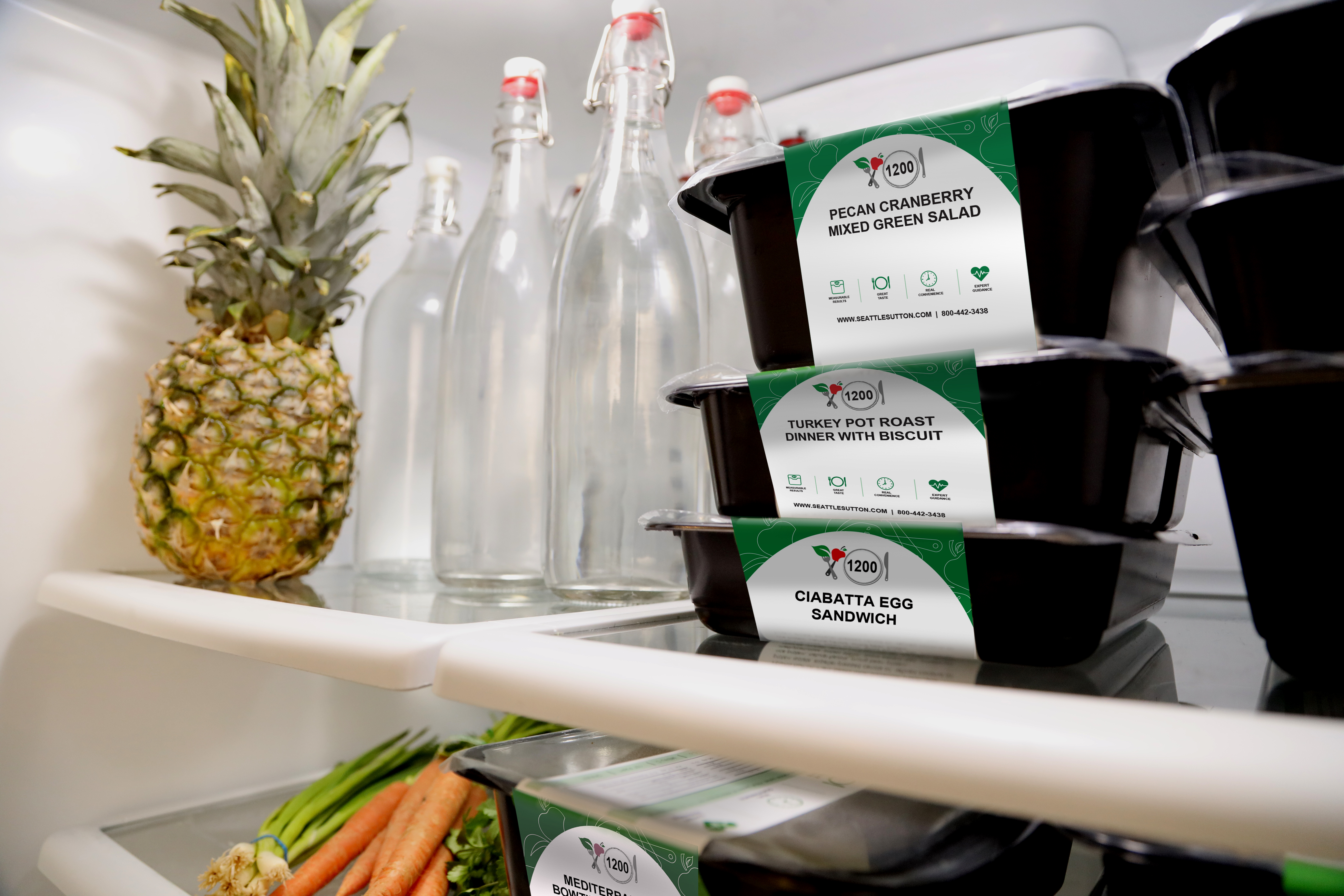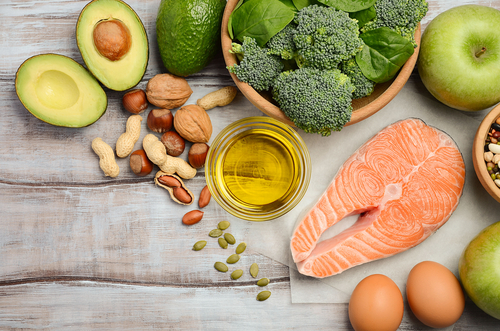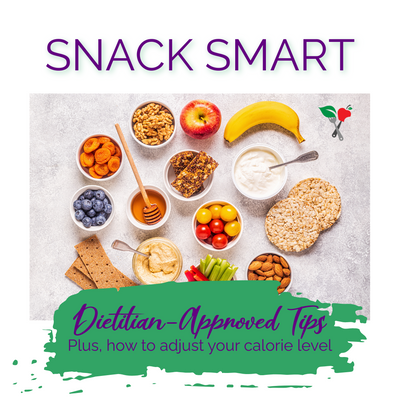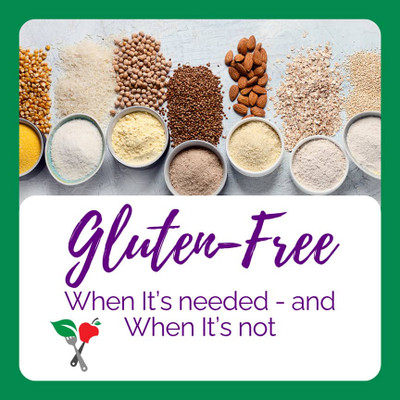Diet Recommendations for Rheumatoid Arthritis
Rheumatoid arthritis, or RA, is an inflammatory autoimmune disease in which the body’s immune system attacks the lining of healthy joints, causing pain, inflammation, stiffness, and sometimes loss of function. In certain people, the condition can damage a wide variety of body systems including the skin, eyes, lungs, heart, and blood vessels. This can lead to deformities, chronic pain, or even struggles with balance.
There is currently no cure for rheumatoid arthritis, however, interventions including medications, lifestyle, and nutrition modifications may help prevent or slow the progression of joint damage and help with managing symptoms.
Signs and Symptoms
Signs and symptoms of rheumatoid arthritis may include:
- Pain, swelling, or stiffness in more than one joint, usually on both sides of the body
- Joint stiffness that is worse in the morning and after activity
- Fever, and loss of appetite
- Joints most impacted by rheumatoid arthritis are the hands, wrists, knees, but other joints and organs such as the lungs, heart, and eyes can be affected
- Weight loss
- Fatigue and weakness
Many people with RA experience flares – times when symptoms get worse – and periods of remission, when symptoms improve. It is common that in early phases of RA for it to affect smaller joints first, particularly the fingers and toes. As the disease progresses, symptoms can spread to the wrists, knees, ankles, elbows, hips, and shoulders.
Risk Factors
The cause of RA is unknown, however, researchers have studied several genetic and environmental factors to determine if they impact the risk of developing RA. The likelihood of being diagnosed with RA increases with age, the most common age to be diagnosed is in the 60s. According to the American College of Rheumatology, about 75% of people diagnosed with RA are women. Other risk factors include exposure to smoke, obesity, and genetics. Alternatively, women who have breastfed have a decreased risk for developing RA. Women who have given birth also appear to have a decreased risk than those who have not.
Diagnosis
Usually, a doctor or team of doctors will review symptoms, perform a physical examination, and do x-rays and lab tests to diagnose RA. If a diagnosis is determined early on – within 6 months of the onset of symptoms – often treatment can begin to slow or stop the progression of the disease.
Treatment and Nutrition for Prevention
Rheumatoid arthritis is often treated and managed with medication and self-management strategies. Some medications help slow disease progression and prevent joint deformity. Some research has suggested that diet may play a role in the prevention and treatment of RA.
Healthy, Balanced Diet
Researchers looked at data from nearly 170,000 women in two cohort studies and found that a healthier overall dietary pattern led to a reduced risk for RA in women 55 or younger. Women with the highest healthy eating index scores (indicating a healthier diet overall) showed a 33% reduction in RA risk compared to those with the lowest scores.
Mediterranean Diet
A review from 2018 looked at the potential of the Mediterranean diet for the prevention of RA. The authors discussed how the prevalence of rheumatoid arthritis in Southern Europe is lower than in Northern Europe and the United States. They argued that the Mediterranean diet could be a factor since it is higher in antioxidants, unsaturated fats, and foods with anti-inflammatory properties compared to the typical Western diet.
Researchers think that the Mediterranean diet could help with RA management as well. One clinical study found that participants experience improvements in pain and physical functions after 3 months of a Mediterranean diet and reduced stiffness after 6 months. Other studies report swelling and inflammatory biomarker improvements after 3 months.
A traditional Mediterranean Diet is high in heart-healthy fats, antioxidants, vitamin C, dietary fiber, and other vitamins and minerals. Interestingly, the amount of fat in the Mediterranean Diet is similar to the total amount in the traditional American diet, however, the emphasis in the Mediterranean Diet is on healthy sources of fat such as olive oil, avocado, nuts and seeds, and seafood. They encourage eating more fresh fruits & vegetables, opting for whole grains, enjoying some dairy foods, using herbs and spices, and having less meat-focused main dishes.
Cut Down On Salt & Sugar
Additional research supports reducing salt and sugar intake to reduce risk. A cross-sectional study of almost 19,000 people found that a high salt diet (about 5,000 mg per day) was associated with self-reported RA. A case-control study found a significant association existed between a high salt diet and risk for RA among smokers and it was dose-dependent, more than doubling their risk. Another study found women who drank one or more servings of sugar-sweetened soda a day may increase their risk of RA.
Supplements
In a 2020 systematic review on the effects of diet and dietary supplement on Disease Activity Score in 28 joints, or DAS28 which measured rheumatoid arthritis severity found that participants who supplemented with 1.5 grams of ginger powder for 3 months, 2 grams of cinnamon powder for 2 months, and 100 milligrams of saffron for 3 months had significant improvements compared to placebo. Participants who supplemented with 1000 milligrams broken into two doses per day of curcumin for 8 weeks had the highest improvements. You don’t have to rely on supplements for these benefits though. Adding more spices to your foods will also provide some benefits. Flavor your foods with ginger, saffron, cinnamon, or curcumin in place of salt.
Probiotics: More Than Just for the Gut
L. casei 01 (108 colony-forming units), L. Acidophilus (2 × 109 colony-forming units), and B. Bifidum (2 × 109 colony-forming units) were found in a 2020 systematic review to benefit RA. These probiotics resulted in lower inflammatory markers and an improvement in DAS28 scores. Participants took the probiotics daily for two months. To get the benefit of these probiotics, make sure when you are buying yogurt and kefir it is marked with “Live and Active Cultures” or ensure the probiotics are listed in the ingredients. If buying pickled items, make sure they are refrigerated and haven’t been heat-treated. Foods that contain probiotics as a result of the fermentation process buffer stomach acids and increase the chance that the probiotics will survive the GI tract. Some dairy products, such as yogurt, are the preferred vehicle for probiotics due to their pH and fat content which create additional protection for probiotics passing through the GI tract.
Omega-3 Fatty Acids
Some research suggests that omega-3 fatty acid intake may help reduce the number of swollen and tender joints and some studies point to omega-3 fatty acids and a decrease in the need for RA medications. While the research is limited and inconsistent, adding more omega-3s to your diet may help reduce RA symptoms due to its anti-inflammatory properties. Foods highest in omega-3 fatty acids include tuna, mackerel, and salmon. Plant-based omega-3s include flax seeds, chia seeds, and walnuts.
Stay Active
The Physical Activity Guidelines recommend that adults with arthritis try to achieve 150 minutes of moderate physical activity every week. Examples include walking, swimming, or biking for 30 minutes a day for 5 days a week. Some evidence shows that remaining physically active can help manage RA pain and improve quality of life. The American College of Rheumatology recommends opting for stretching and rest during a RA flare. Specific physical activity programs for RA can be found at local YMCAs, parks, and community centers. These classes can help people with RA feel better and are recommended by the CDC.
Stop Smoking
Smoking has been shown to significantly increase the risks and complications of rheumatoid arthritis. If you are a smoker, it is encouraged to start a smoking cessation program. The benefits will go way beyond your RA! Get help to stop smoking and visit “I’m Ready to Quit” the CDC’s Tips for going smoke-free.

How Seattle Sutton’s Healthy Eating Fits in Your RA Prevention and Disease Management
The healthy, convenient meal plans at Seattle Sutton’s Healthy Eating fit perfectly into the recommendations listed above. Our meal plans are balanced and consistent with the 2020-2025 Dietary Guidelines for Americans. We emphasize limiting sodium and added sugars and encourage our customers to eat foods with omega-3 fatty acids, probiotics, and a variety of whole foods, herbs and spices. Our plans follow the basic principles of the Mediterranean diet and include unsaturated fats, dietary fiber, as well as a variety of fruits and vegetables, whole grains, lean proteins, and low-fat or fat-free dairy. Maintaining a healthy weight is really important for those with RA and all of our meal plans are designed to help you reach AND maintain a healthy weight through sensible calorie and portion control.
Ready to Try Us? Give Us a Shot Today!












 Weight Loss
Weight Loss Health & Wellness
Health & Wellness Diabetes
Diabetes Heart Health
Heart Health Motherhood & Family
Motherhood & Family Dietary Restriction
Dietary Restriction Other Health Conditions
Other Health Conditions About SSHE
About SSHE


